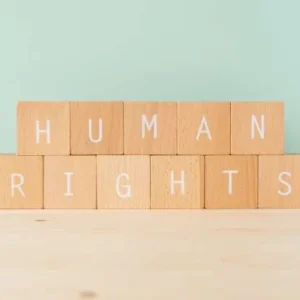Amnesty International has released a report revealing that Chinese courts are systematically used to suppress human rights defenders through vague national security and public order laws. The briefing, How could this verdict be ‘legal’?, analyzes over 100 judicial documents from 68 cases involving 64 activists over the past decade, showing that courts frequently convict peaceful journalists, lawyers, and citizens based on their speech, associations, or international engagement. Sarah Brooks, Amnesty’s China Director, noted that while China projects an image of rule of law, its judiciary often functions as a tool of repression rather than justice in politically sensitive cases.
The report highlights that more than 90% of cases relied on broadly defined charges such as “subversion of state power,” “inciting subversion,” and “picking quarrels and provoking trouble,” which criminalize peaceful activism. Online expression, interviews with foreign media, and participation in international NGOs were routinely treated as evidence of “subversion” or “collusion with foreign forces.” Defendants often faced violations of fair trial rights, including denial of chosen legal counsel, prolonged pre-trial detention, and enforced “residential surveillance at a designated location” (RSDL), a practice equating to enforced disappearance and possible torture. In 67 of 68 cases with verdicts, defendants were found guilty and sentenced to prison terms ranging from 18 months to 19 years.
The report documents the broad criminalization of fundamental freedoms, including peaceful assembly, labor activism, and advocacy for women’s rights. Human rights defenders were treated as enemies of the state simply for criticizing the government, assisting workers, or petitioning higher authorities. International engagement, including modest NGO funding or speaking with foreign journalists, was consistently cited as criminal activity, effectively isolating defenders from global support networks.
Amnesty also found systematic denial of fair trials. Defendants were frequently held incommunicado, and allegations of torture were dismissed without investigation. Trials were often closed to families, media, and diplomats under claims of state secrecy, and nearly all cases resulted in custodial sentences, with many imposing additional restrictions on political and civil activities after release.
Amnesty calls on China to repeal or revise vague laws, abolish RSDL, end incommunicado detention, and ensure fair trial guarantees, including access to lawyers of choice and exclusion of evidence obtained through torture. The organization urges the immediate release of all individuals imprisoned solely for peacefully exercising their rights to freedom of expression, association, or assembly, emphasizing that while the risks are severe, human rights defenders in China continue to persist, and international support remains critical.






